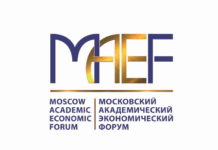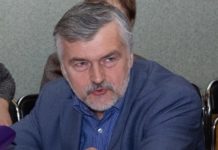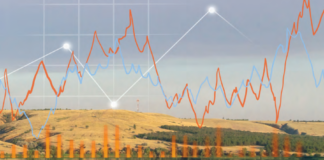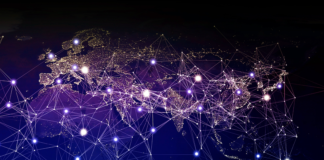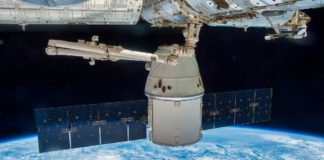This issue of our journal is published on the eve of one of the main events in the academic environment of Russian economists — the annual Moscow Academic Economic Forum. It is not just another forum but an anniversary one. In 2023, MAEF will be held for the 5th time. And, of course, the editorial board cannot ignore this «feast» of economic science. We devote many pages of this issue to the ideas, concepts, and discussions of the country’s economists.
The current MAEF is taking place in a special environment both in the economy and in geopolitics. As the President of Russia emphasized, the paradigm of our civilizational development, in which the world has lived for the past half century, is being demolished. And the prospects are seen less and less certain, the challenges become more and more formidable, the countries and peoples — more and more divided. Built according to the “mainstream” patterns, globalization is gradually (actually, not so gradually anymore) developing into “glocalization”, a war of sanctions that was previously unthinkable in terms of heat, and clustering of the world economic space.
How to live – survive? – for us Russians, our economy in this new world? What to do? How to ensure the successful development of our country? This Forum is about just that. And although, generally speaking, at all previous MAEFs, academic experts also discussed the difficult problems and challenges facing the Russian economy, the anniversary Forum raises fundamentally more important – I would say: existential level – tasks for our society.
Among the trends that determine the very likely trends in world development, and which cannot be ignored by local economies, including the Russian one, there are those whose progress can radically change all the main “genetic alleles” of current ideas about both the real needs of people and the mechanisms for their satisfaction. Scientists rightly draw attention to the need to take them into account with all the accompanying positive and negative consequences when assessing development paths, forming appropriate strategies and economic decisions.
One of these trends is the beginning of the transition to a new technological order, the rapid acceleration of scientific and technical progress, laying the foundation for a new generation of industrial society, in which knowledge plays a decisive role. And I would add that I mean not just knowledge, but the creative abilities of a person based on knowledge. The ratio of creativity and the so-called reproductive labor, in this regard, is no longer a topic of purely theoretical speculative colloquia, but a question that requires fundamental research by political economists, sociologists, and psychologists.
If we were talking only about formal knowledge, then we would probably quickly lag behind artificial intelligence, to which our correspondents paid a lot of attention in this issue of the magazine. Our editor even talked to its bright representative — the most advanced AI model to date, ChatGPT — on the question of whose work it is ready to replace. And this is what he answered us (we hope that the developers have not yet trained him to dissemble):
“As an artificial intelligence, I can effectively replace or supplement workers in many industries, including finance and accounting, where I can perform routine tasks such as accounting for expenses or generating reports. In medicine, I can help in the diagnosis and treatment of diseases, as well as in the analysis of medical data. In production, I can automate production processes and manage inventory … «.
And this is only a small part of the list. But it does not have what we understand as a creative process.
Growth as a consequence and the factor of «accelerating the acceleration of scientific and technological progress», knowledge of the capacity of the social product and knowledge of the intensity of production, or more broadly — knowledge of the intensity of the economy, which we have been talking about for many years, will increasingly require not just education, but much more — creative abilities. Not only theory and practice, but also artificial intelligence itself tells us: we must move towards a new society in which a person will not only be provided with material goods, but will be capable of creativity; without this, there cannot be success in the progress of knowledge-intensive production, in the mode of constant acceleration of innovative technological development, without which social progress is impossible.
And what is needed for this? This is another tricky question. A possible hint is the intensification of the process of socialization of the economy and society.
The course taken and maintained, despite the understandable (we hope — temporary) difficulties by the current Russian government on the socialization of the economy, improving the quality of life of the population, building a socially oriented state is something unconditional, or, as mathematicians say, necessary to solve this problem.
And there is a related, but apparently even more important task in focusing on solving social problems, Russia and friendly countries should and can in the future show the whole world a new direction of development in which not only economic growth, but also social justice and opportunities for creative self-realization are priorities. And even not just self-realization, but the task becomes a number of topical ones of the formation of a new understanding by a person of his role and mission, if you like — a new, «no-human», because a person is a being not just a bio, but endowed with spirit and mind, in other words — «noo being». Perhaps this is the historical mission of Russia not only for the world, but also for the self-preservation of itself as a country and the «saving of the people» of its own.
Another trend. A market economy is an economy whose attributes are competition and individualism. But can the above problems be effectively solved under such conditions? It is unlikely that anyone will object to the assertion that in order to move towards a new society — a society whose main actor will be a person focused on innovative, creative activity, the promotion along the path of solidarity also becomes a necessary direction of development. The study of the theoretical foundations, mechanisms for the development and strengthening of the ideology of solidarism — we note that there is already a short story about this in the Russian Constitution — this is another important problematic complex issue for the research view of the academic community.
Adjacent to the previous question is the political economy foundations of the current economic model. First of all, there is the problem of the institution of property. It is no secret that this institution, which objectively arose in the human community in a certain period of its history, is now undergoing a powerful and even somewhat crushing impact of those trends of civilizational development that I mentioned above. What kind of transformation is being prepared for him by the civilizational transition that has begun? This is also a fundamentally important issue in the field of scientific research of social scientists.
So, «Quo Vadis?» And how can this “Vadis” be achieved in a more or less rational and less, not more, conflict way? Having named four fundamental aspects that fundamentally determine the global agenda for the development of human society, I will allow myself to use for this the image of the “Apollo quadriga”, an ancient Greek cart, on whose four horses he, the god of beauty and reason, flies into the world of spiritual perfection, creativity, culture, and let me emphasize: we can consider theoretically and practically substantiated the conclusion that it is necessary to form just such a “quadriga” of methods and means of moving towards a new society.
The shaft-horse of this quadriga is scientific and technological progress, the rapid development of a new generation of knowledge-intensive industry based on the technological core of the new order: digital, communications, etc. It is complemented by three other «horses»: the transformation of property relations (its diffusion), socialization and solidarism. At the same time, it remains to be explored how, in what ways, along what trajectory this “four” will advance us to a new society — a society in which “economic man” becomes a “cultural man”, in which knowledge-intensive production will free a person from economic dependence and routine labor, filling his life with other meanings, the fullness of creative activity — a society whose beyond-the-horizon features are clearly visible to scientists today.

